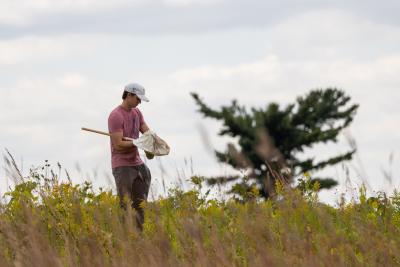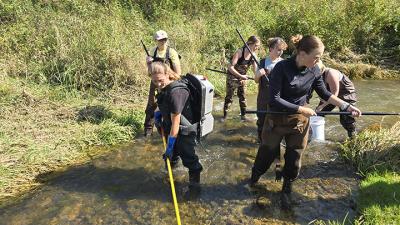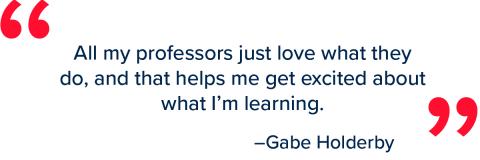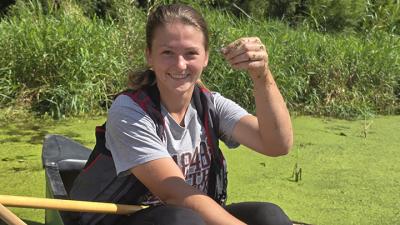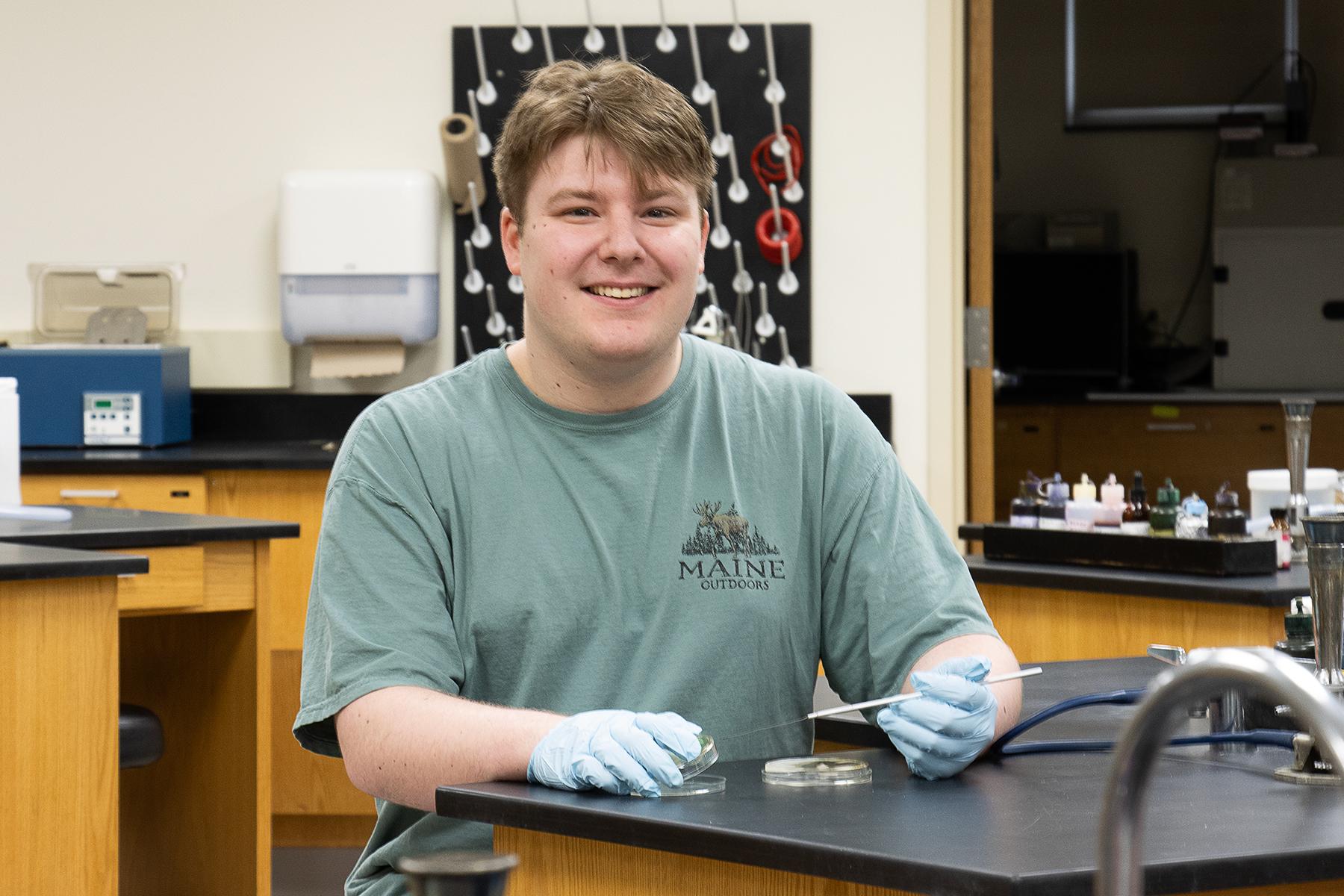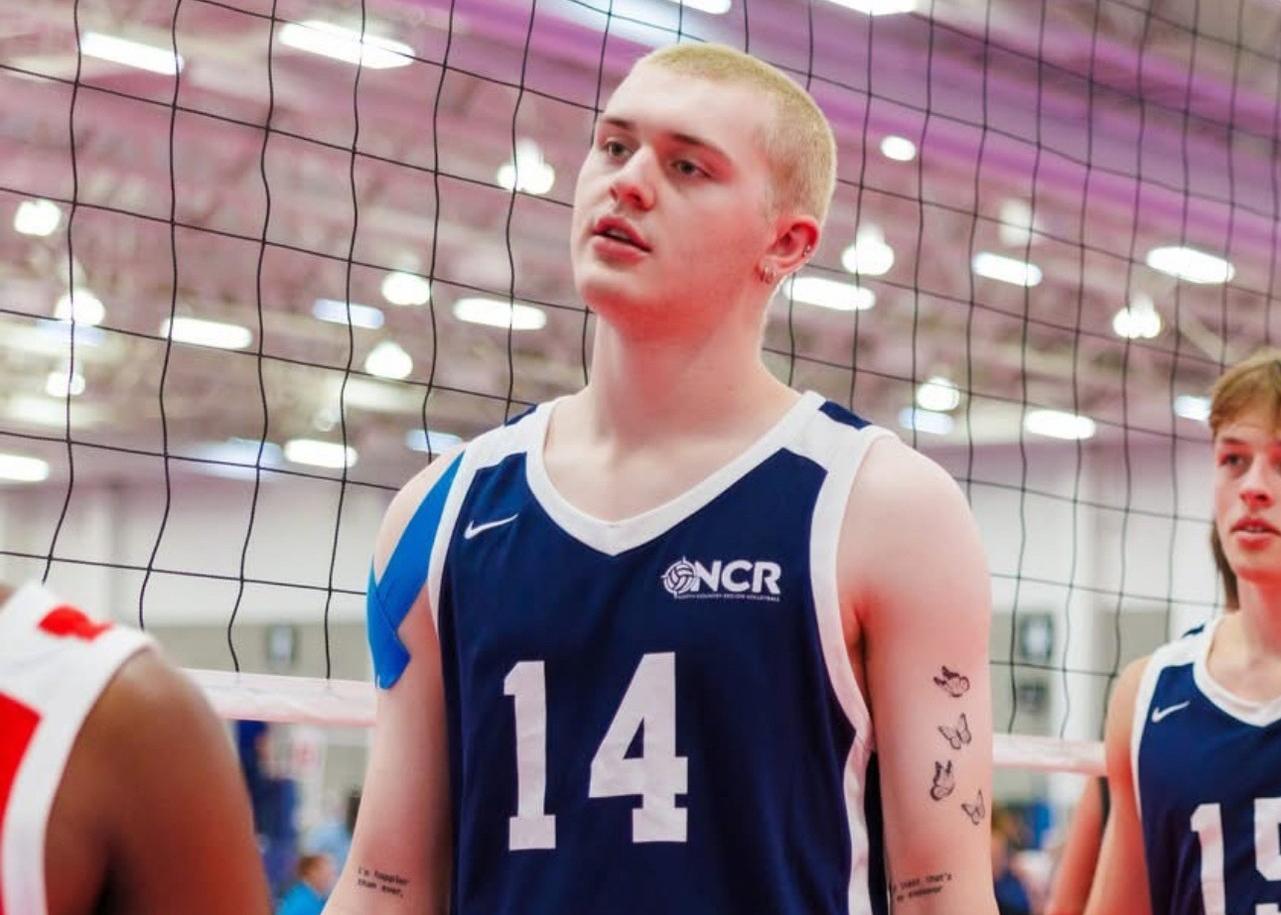Gabe Holderby considers being outdoors and enjoying the beauty of nature to be one of life’s most enjoyable experiences. So, when the Viterbo biology major and future dentist needed an additional upper-level science course, he thought Conservation Biology (BIOL 321) would be perfect.
Turns out he was correct. Containing numerous hands-on field experiences such as analyzing the water chemistry and trout population of Mormon Creek, measuring the number and type of insects in different plant clusters at Holland Sand Prairie, and examining the biodiversity of the backwaters of the Mississippi River, Holderby and his fellow classmates are putting science into practice—and having some fun—in a course that feels quite different than the traditional class.
“I think the biggest thing I’m taking away from the class is a new appreciation and understanding of why conservation is important,” said Holderby, a senior from Normal, Ill. whose favorite class activity has been nature photography. “Before I always enjoyed nature and being out in the elements, but learning the science behind the environment has given me a greater knowledge of the ‘why. I am really enjoying it.’”
Each student in the class also completes a semester-long research project, which can be tailored to their personal interest or future career field. In Holderby’s example, there are discussions in Madison about removing fluoride from drinking water because of concerns about its effect on the environment. Dentists, not surprisingly, recommend keeping it. Holderby is taking water samples near the water treatment plant and other sites to measure the amount of fluoride. So far, the amount is safely below recommended levels.
Holderby will graduate in May 2026 and attend dental school in the fall. He has been very happy with his Viterbo University experience, from the close relationships and in-depth conversations with professors to growing and learning through the well-rounded education he has received.
Taught by Dr. Ted Wilson, Conservation Biology is a 4-credit class in which the time of enrolled students is split evenly between the classroom and the field. It has proven to be very popular, with many of the same students also taking Wilson’s Limnology (the study of inland water bodies) course.
“They absolutely love it,” Wilson said. “Most of our science students at Viterbo are pre-health majors, but we also hope to instill an understanding and passion for ecological and environmental sciences as well.”
Other class research projects being done this semester include studying the benefits of a campus pollinator garden and assessing the number and variety of the bird population in the north side of La Crosse. One student is even partnering with the U.S. Geological Survey and National Park Service to use artificial intelligence to analyze 17 years of frog audio recordings in Dunes National Park and habitats throughout Wisconsin.
In addition, the USGS and other government entities have provided Viterbo students with practical experiences regarding invasive species and fish parasites and disease. They’ve also given career advice about the best ways for students to get hired as scientists at their respective organizations.
“We’re fortunate to have wonderful external partners such as the USGS, the U.S. Fish and Wildlife Service, the Department of Natural Resources, Dairyland Power, and The La Crosse Wastewater Treatment System,” Wilson said.
Photos by Ted Wilson.
Explore the Program
Experience how Viterbo’s biology program provides a strong foundation in the life sciences with opportunities for fieldwork, lab research, and faculty mentorship. You'll be prepared for careers in health care, environmental science, education, and more—all in a supportive, values-based learning environment.

